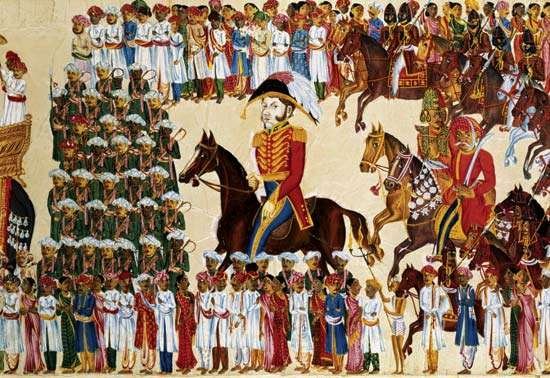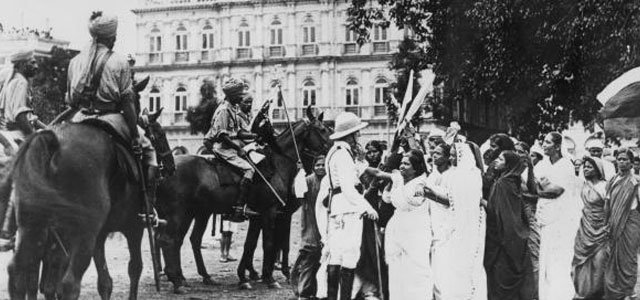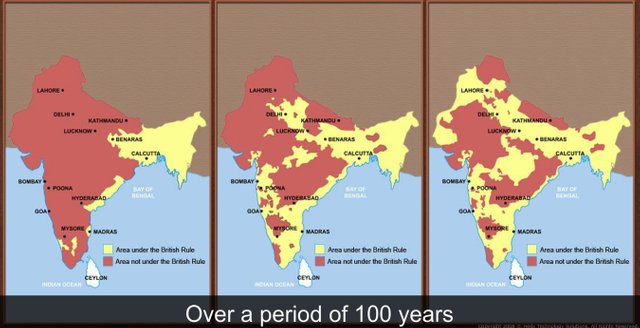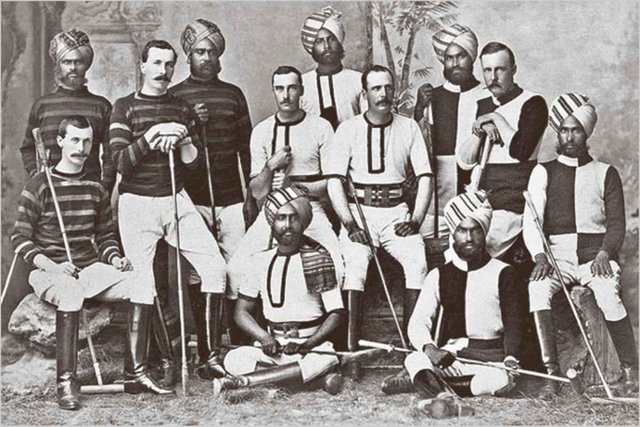Academic Paper: How the British East India Company further developed the Indian Nationalism?
Hello i would like to share again another academic paper presented in our class with the topic about:
How the British East India Company further developed the Indian Nationalism?

Source
Problem Statement: The British Colonial expansion through the establishment of British East India Company further awakened the Indian nationalism.
The Factors that supplemented the growth of the arising Indian Nationalism?
- How was rule of the British East India Company?
- How did the Indians respond over the British exploitation in India?
- Did the Indians succeed in their aspirations for their own country?
Introduction

Source
How the British East India Company developed Indian Nationalism?
India is a diverse country. It is a land of different languages, religions, social customs, races and identities. Early before the coming of the British Colonization, there was already a little presence of the spirit of nationalism among the Indian people. If nationalism in Europe arose by the period of Renaissance which intensified by the French Revolution that inspired the whole world, for India, the making of national identity can be drawn back on its ancient period. Indian emperors tried to maintain the sentiment of unity throughout the country to name a few, like Ashoka, Samudragupta, Harshvardhan, and Akbar (Meena 2016). However, it was only intensified in the modern period that national consciousness and national identity came to large extent thus resulted to anti – colonial movements.
Points of Arguments
Source
But how did the British penetration begun? Instituting indirect control in the area was somewhat difficult since the Dutch East India Company was already established and permission was not easily obtained by the British from the Mughal government which was not interested to European trade which soon declined. The mere fact that the Indians were divided among themselves and the states were constantly at war with each other had given possibilities for the British to have some natives as their subjects in helping them running the government for their own interest and to make India a platform to fulfill Britain’s needs. “We gave India to the English than that India was lost” as what Gandhi said (Sugata Bose, Ayesha Jalal 1997). It just proved that Indians were willing to accept British rule because they perceived its presence as an advantage for their land.
The British left the conquest of India through the establishment of a private company – The British East India supervised by the British government. Heavy duties were imposed on Indian goods entering Britain so as to protect their own industry (Impact of the British Rule in India: Economic, Social and Cultural (1757 - 1857) n.d.) They monopolized the sale of all kinds of raw materials and bought these at low prices whereas the Indian weavers had to buy them at expensive prices. All the countries under the East Indies were granted a monopoly for England, it is obvious that the latter would use the bilateral link with India to give her more profits and that is through exploitation. The British rule can be blame to the cultural stagnation in India, the paradox was, it also intensely supplemented the growth of nationalism to a much number of Indians which resulted national anti-colonial movements. To focus in the British East India Company, a foreign stimulus, native response was sharp. But who were the leading actors determined for change in the Indian society? Numerous individuals’ the peasants, the middle class, reform societies, religious organizations held reform movements and even protests which resulted to national movement against the British Empire.

Source
By the 19th Century India encountered a lot of famines and the ruthless exploitation of British Colonial rule completely devastated India’s economy. It resulted to a series of resistance movements namely, The Sanyasi and Fakir Uprising, The Farazi movements, the Wahabi movement and the Santhal rebellion are just a few of the aggressions of discontentment. (Impact of the British Rule in India: Economic, Social and Cultural (1757 - 1857) n.d.) The Revolt of 1857, helped to spread the anti-British sentiments, the company during the famine of 1770 – 1870 witnessed a large number of uprisings and rebellions.(Madddison 1971) Furthermore, the Indians, which were used to be divided with each other, having different tribes and religions and social classes were unified in the revolt against the British Empire. The revolt marked an end of British East India Company and was helpful to India in achieving sovereignty from British Imperialism after that century.
Conclusion:

Source
The British Colonial Expansion through the establishment British East India Company brought phases of changes in the Indian society. It brought prosperity in the aspect of Industrialization and Urbanization which soon became a determining factor in helping the Indians to spread the sense of nationalism over the region. However, since it was meant to become a monopolistic trading post between the bilateral links from India for Great Britain, it is, therefore, that the nature and structure of the India’s economy will be determined by the satisfaction of the British Empire’s economic stability. It is to expect that India as a colonial economy of Great Britain will encounter drastic exploitation of raw materials or Indian products. There was a lot of causes intensified Indian aspirations for their own native land because of the English East India Company: Inequality, Indians were not allowed to purchase imported British products. There was a forceful of prohibition of Indian entrepreneurs to gain control in business, although the system of the company pay modest salaries among its servants. Also, the British economic policies which affected classes of peasants and artisans but what really further developed Indian nationalism was when Indian society eliminated their difference to be unified and fought against British Empire because of the famines they encountered which was the effect of the ruthless exploitation of the British East India Economy.
Bibliography
"Impact of the British Rule in India: Economic, Social and Cultural (1757 - 1857)." In India and the World Through the Ages, 104. n.d.
Madddison. The Economic and The Social Rule in India. 1971.
Meade, Teresa A. A History of Modern Latin America: 1800 to the Present. United Kingdom: John Wiley & Sons Ltd, 2010.
Meena, Dr. Hareet Kumar. "Understanding the Nature and Growth of Indian Nationalism in the Latter Half of the 19th Century ." American International Journal of Research in Humanities, Arts and Social Sciences , 2016: 108-109.
Sugata Bose, Ayesha Jalal. Modern South Asia: History, Political, Economy (2nd Edition). Delhi: Oxford University Press, 1997.
Posted from my blog with SteemPress : http://zam398.vornix.blog/2018/08/09/academic-paper-how-the-british-east-india-company-further-developed-the-indian-nationalism/
